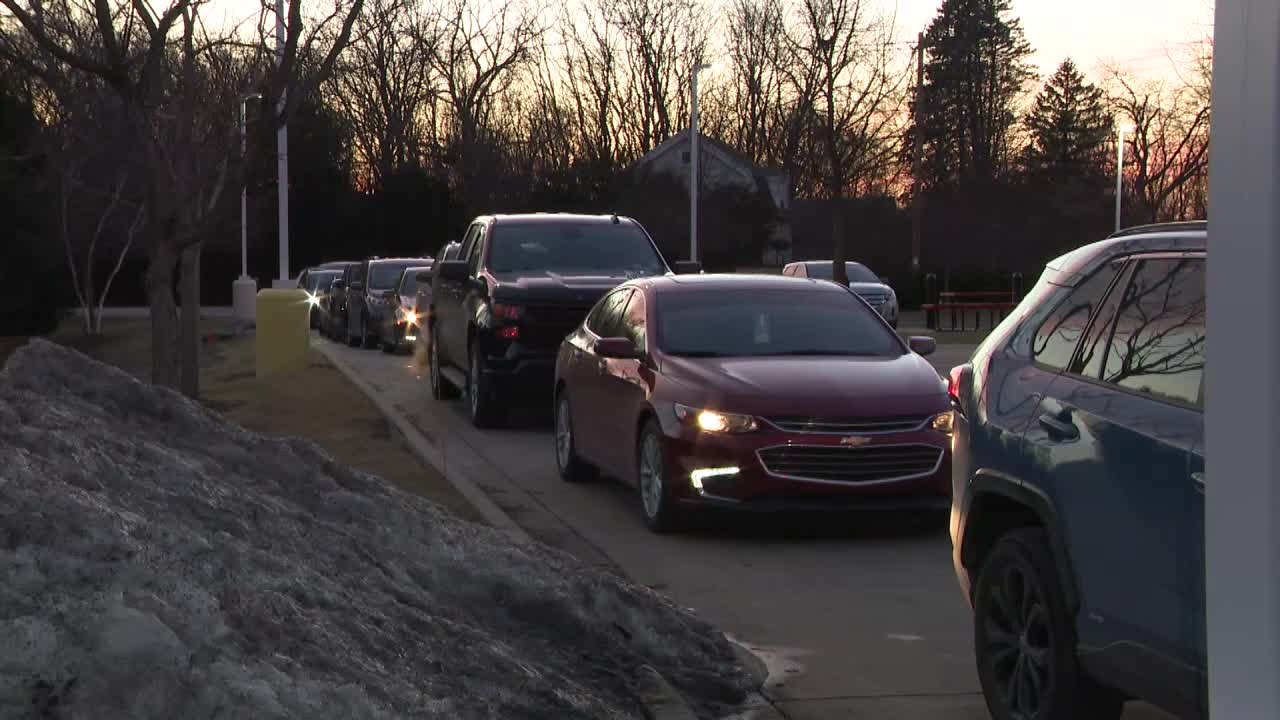Wyoming
Recent Rain Has Helped Ease Southeast Wyoming Drought Conditions

All the rain we’ve been seeing in southeast Wyoming has an upside, according to the Cheyenne Office of the National Weather Service.
The agency says that while the wet weather has not totally solved the drought facing the area, it certainly has improved the situation.
The agency posted this statement and graphic on it’s website:
Greetings! Some good news for area ranchers and farmers, recent rainfall has improved drought conditions by one category across the area in May. That is great news from what we have been experiencing the past couple years. We still have a long way to go, but we’re heading in the right direction right now. Here’s hoping you get more rainfall over the next week or two to continue improving our drought.
The Top 30 Country Songs About Regret, Ranked
No matter what side of the apology you’re on, country music has plenty of songs about regret, remorse, apologizing and forgiving — or, in some cases, deciding not to forgive. Here are the Top 30 songs the genre has to offer on the topic.

Wyoming
Wyoming Senate takes step to reduce regulatory barriers to housing developments

Wyoming
Wyoming and Massachusetts Join Growing List of States Considering Bitcoin Reserves – Decrypt

Daily Debrief Newsletter
Start every day with the top news stories right now, plus original features, a podcast, videos and more.
Wyoming
Trump's deportation agenda taking hold with Wyoming Legislature, some sheriffs – WyoFile

CHEYENNE—The Legislature and some sheriffs are simultaneously pursuing programs to align Wyoming with incoming President Donald Trump’s deportation agenda, and make the state an unwelcoming place for people in the country without permission.
House lawmakers aligned with the Wyoming Freedom Caucus have brought bills to punish employers who hire undocumented immigrants and local government officials who fail to cooperate with federal authorities. They also seek to make it illegal for undocumented immigrants to drive in the state, even with a valid license from another state.
Meanwhile, a growing number of sheriffs are pursuing agreements with the federal government to position county jails more firmly in the service of federal immigration enforcement.
Sheriffs in Laramie, Campbell and Carbon counties recently told WyoFile about discussions with U.S. Department of Homeland Security officials regarding agreements to assist with the deportation of noncitizens arrested for non-immigration offenses. Sweetwater County has had such an agreement in place since 2020.
All of those counties line either Interstate 80 or Interstate 90.
Taken together, lawmakers and the sheriffs could make Wyoming hostile territory for people who have entered the country illegally, even if they’re just passing through. If the driver’s license bill becomes law, for example, undocumented immigrants licensed to drive by other states who are traveling through Wyoming could run the risk of being jailed and slated for deportation.
Gov. Mark Gordon has also touted immigration enforcement, noting in his State of the State address that he deployed a contingent of the Wyoming Highway Patrol to support Texas during its standoff with the federal government this past summer.
Since then, he said, Texas’ governor sent a detachment of its law enforcement to Wyoming, to talk with local police agencies about “what we need to do in our heartland.”
Counter lobby
Advocates for the state’s immigrant population say muddling local law enforcement and federal immigration enforcement will make communities less safe by fostering distrust between police and those they’re sworn to protect and serve.
The enforcement drive will also hurt the state’s economy, advocates say, by driving off undocumented workers who came to the country to work.
“This isn’t going after what they think it’s going after,” American Civil Liberties Union of Wyoming Advocacy Director Antonio Serrano said.
“Wyoming is finally starting to grow. There’s a lot of construction, there’s a lot of stuff going up and immigrants are building that. They’re helping Wyoming grow. In the Wyoming I grew up in, we respected people who wanted to work and work hard.”
Undocumented immigrants and their advocates are principally up against the Freedom Caucus, an ascendant political bloc committed to supporting Trump’s anti-immigrant agenda across the board.
The measure to punish errant employers, a bill brought by freshman Rep. Gary Brown, R-Cheyenne, is sparking broader opposition. Lobbyists for the Wyoming Farm Bureau Federation and the Wyoming Hospitality and Travel Coalition told WyoFile their members were likely to oppose that measure.
“We do not support the intentional hiring of illegal workers,” Chris Brown, executive director of the hospitality coalition, said. “We also don’t support new, heavy-handed regulations that could hurt Wyoming’s main street businesses.”
Wyoming farmers’ longtime lobbyist Brett Moline agreed. “For my agricultural guys it’s so hard to get somebody here legally,” he said. “[The federal government] has made it so difficult to get labor legally, that’s why people are coming illegally.”
State lawmakers are wading into a federal issue, Moline cautioned. “I’m wondering if this is even appropriate for the state. This is something that needs to be settled at the federal level,” he said.

Whether business interests will also throw their weight against measures like the driver’s license bill remains to be seen.
House Bill 116, “Driver’s licenses-unauthorized alien restrictions,” would invalidate the licenses issued to undocumented immigrants by as many as 19 states. State legislatures like California’s created such licenses to reduce the number of unlicensed and uninsured drivers on the road, as well as embrace undocumented immigrants they consider valuable to economies and communities.
That view isn’t shared by many lawmakers in Cheyenne. “In Wyoming, we shouldn’t provide legal privileges to those here illegally,” Rep. Pepper Ottman, a Riverton Republican and the bill’s principal sponsor, wrote in an email to WyoFile.
Law enforcement chiefs interviewed by WyoFile said they weren’t entirely certain if undocumented immigrants driving with such licenses would be detained. In many cases, they said, offenders would be issued a ticket then — if someone else could take the wheel — travel on. But if not, they may end up stranded or, if there are other criminal charges, even jailed.
“If you don’t have a driver’s license you can’t drive,” said Col. Tim Cameron, who directs the Wyoming Highway Patrol. “They would need an alternative method of transportation or another driver.”
Community resources
Community organizers around the state are beginning to network with each other to oppose the bills, and prepare immigrants for increased policing activity by U.S. Immigration and Customs Enforcement, Serrano said. But the state’s network of immigrant advocates is spread out and somewhat disconnected.
“We’re trying to bring everybody together,” Serrano said. “People are scared and they want to know their rights. [Lawmakers and law enforcement] are sending a lot of signals to immigrant folks that ‘you’re not welcome in Wyoming.’”
The state also has a dearth of attorneys practicing immigration law, both to help people pursue legal status and to defend them in deportation proceedings.
Rosslyn Read, legal director of the Wyoming Immigrant Advocacy Project, estimated there are six or seven attorneys including herself dedicated to immigration law in the state. Read’s approach is even rarer since she runs a nonprofit and charges clients based on their income.
Demand for her legal services has skyrocketed, she said, as people scramble for asylum status or to rectify expired work visas. “Supply to demand is totally out of control,” she said of immigrants seeking legal help in a system she views as stacked against them.
“The rhetoric of ‘just get in line’ is completely false,” she said. “The system is not really designed to encourage authorized immigration.”
Caucus agenda
Freedom Caucus members see Ottman’s driver’s license bill as another layer of protection against illegal voting. The legislation is a part of the Freedom Caucus’ leading five priorities the bloc hopes to pass out of the House within the first 10 days. It’s also backed by Secretary of State Chuck Gray.
In a legislative meeting Wednesday, Gray cited one case of someone voting in Wyoming while in the country illegally, in 2020. In 2023 the federal government discovered the fraud and the Campbell County clerk removed the person from the voting roll.
Rep. Joel Guggenmos, also aligned with the caucus, has brought House Bill 133, “Sanctuary cities, counties and prohibition,” which would charge government officials who don’t cooperate with federal immigration authorities with a felony. The charge carries up to five years in prison.
The bill would ban the passage of any “sanctuary” laws in the state that prevent local law enforcement from sharing information with federal immigration authorities (there are none today), and cut funding to counties or cities that try such legislation.
Recent conservative attention on Teton County Sheriff Matt Carr is driving the bill, Guggenmos told WyoFile. Carr drew the ire of Wyoming’s Republican Congresswoman Harriet Hageman and conservative state lawmakers when ICE reported Carr did not hold undocumented immigrants in jail until federal agents could collect them for deportation.
“Every elected official and law enforcement agent takes an oath to protect and defend the Constitution,” Guggenmos said. “That is the number one thing that they swear an oath to.” In doing so, Guggenmos said, those officials align themselves with the federal government, whose “number one task is to protect us from foreign invaders.”
Carr has not held people on ICE detainers — a request from the agency that jails hold people until they can be picked up for deportation — because they are not signed by a judge, according to other news reports.
Carr did not respond to WyoFile requests for comment. But his defenders argue that what really runs afoul of the Constitution is holding people in jail after a judge releases them.
Federal courts have found ICE detainers to be unconstitutional in some cases, particularly when a sheriff hasn’t entered a legal agreement with the federal government to participate in immigration enforcement.
Read, the Jackson attorney, said she believes Carr does cooperate with ICE, by alerting them to undocumented immigrants who go into the jail. What Hageman and the Freedom Caucus are asking of him goes beyond the law, she said.
“He and I disagree about this,” Read said. “I wish [Carr] wouldn’t call ICE, but I am defending him because he is doing what is legally required.”
Growing cooperation
Other sheriffs are not hesitating to hold immigrants in their jails for ICE.
Conservatives accuse Carr of ignoring ICE’s requests over a nearly two-year period from February 2023 to mid-December 2024. During the same period, sheriffs in the state’s six most populous counties complied with every detainer they received, according to data provided by ICE.
A mounting number of sheriffs are now seeking to solidify their relationships with ICE through contracts called 287g agreements. Those agreements allow deputies to serve ICE warrants on people in the jail, streamlining deportations and blunting questions about the legality of holding undocumented immigrants after their release date for the local crime.
The agreements only cover people brought to jails on suspicion of committing a non-immigration offense. Deputies could not arrest someone solely for being an undocumented immigrant, sheriffs say, and are also not supposed to ask people about their immigration status while conducting police work. But civil liberty advocates say the system is ripe for racial profiling and abuse, if motivated deputies start looking for a way to detain people they think are in the country illegally.
“People forget how mixed-status families are,” ACLU advocate Antonio Serrano said. “Maybe some of the kids are citizens, but one of them isn’t, or one parent isn’t.”
As a consequence, opponents of the agreements like Read and Serrano say public safety degrades in communities where local law enforcement works closer with the federal government.
“It’s not just a constitutional or jurisdictional principle,” Read said. “When immigrants don’t trust the police, it hinders the police’s ability to do their jobs and arrest people who are dangerous. If you don’t have cooperative witnesses or [you have] people who are afraid to call and report a crime because it puts their immigration status in jeopardy, it makes everyone less safe.”
Campbell, Carbon and Laramie counties’ sheriffs all emphasized in interviews with WyoFile that their deputies would not be checking immigration status when going about their jobs pulling people over and investigating crimes.
Laramie County Sheriff Brian Kozak, who is pursuing the more aggressive of the two types of agreements the federal government extends to sheriffs, said he is aware that Cheyenne’s immigrant community might perceive heightened risks from his deputies. He insists that is not the case.
“We want people to come to us to report crimes,” he said. “Our priority is to get criminals who commit crimes.”
He will engage in continued community outreach to ensure immigrants in his jurisdiction know that “we are there to help you. If you call us we are going to help you,” he said.
But Kozak is also outspoken about his desire to aid ICE, and he’s generated headlines for his enthusiasm about engaging with federal immigration enforcement. He recently posted a splashy neon “vacancy” sign above his jail door, in the style of a roadside motel, to advertise that he has space to house more detainees, including federal ones.
The pro-deportation sentiment from the Capitol and sheriffs’ departments will inevitably degrade a sense of trust in Wyoming’s communities, Serrano, the ACLU advocate, said. And if deportations do ramp up to extremes, as Trump is promising, it’s only a matter of time before people being detained and removed from the country start straining Wyoming communities, and families, he said.
“People forget how mixed-status families are,” he said. “Maybe some of the kids are citizens, but one of them isn’t, or one parent isn’t. It’s going to cause a lot of problems.”
-
/cdn.vox-cdn.com/uploads/chorus_asset/file/25822586/STK169_ZUCKERBERG_MAGA_STKS491_CVIRGINIA_A.jpg)
/cdn.vox-cdn.com/uploads/chorus_asset/file/25822586/STK169_ZUCKERBERG_MAGA_STKS491_CVIRGINIA_A.jpg) Technology1 week ago
Technology1 week agoMeta is highlighting a splintering global approach to online speech
-

 Science7 days ago
Science7 days agoMetro will offer free rides in L.A. through Sunday due to fires
-
/cdn.vox-cdn.com/uploads/chorus_asset/file/23935558/acastro_STK103__01.jpg)
/cdn.vox-cdn.com/uploads/chorus_asset/file/23935558/acastro_STK103__01.jpg) Technology6 days ago
Technology6 days agoAmazon Prime will shut down its clothing try-on program
-

 News1 week ago
News1 week agoMapping the Damage From the Palisades Fire
-

 News1 week ago
News1 week agoMourners Defy Subfreezing Temperatures to Honor Jimmy Carter at the Capitol
-
/cdn.vox-cdn.com/uploads/chorus_asset/file/25826211/lorealcellbioprint.jpg)
/cdn.vox-cdn.com/uploads/chorus_asset/file/25826211/lorealcellbioprint.jpg) Technology6 days ago
Technology6 days agoL’Oréal’s new skincare gadget told me I should try retinol
-
/cdn.vox-cdn.com/uploads/chorus_asset/file/25832751/2192581677.jpg)
/cdn.vox-cdn.com/uploads/chorus_asset/file/25832751/2192581677.jpg) Technology2 days ago
Technology2 days agoSuper Bowl LIX will stream for free on Tubi
-

 Business4 days ago
Business4 days agoWhy TikTok Users Are Downloading ‘Red Note,’ the Chinese App


















